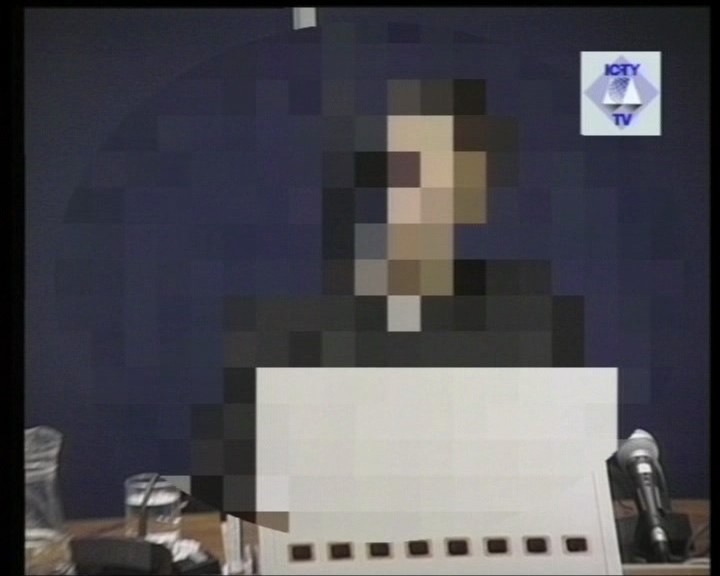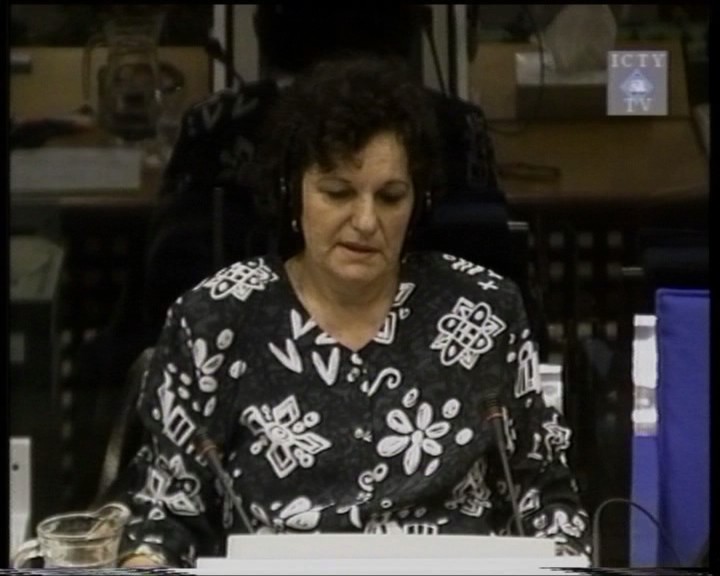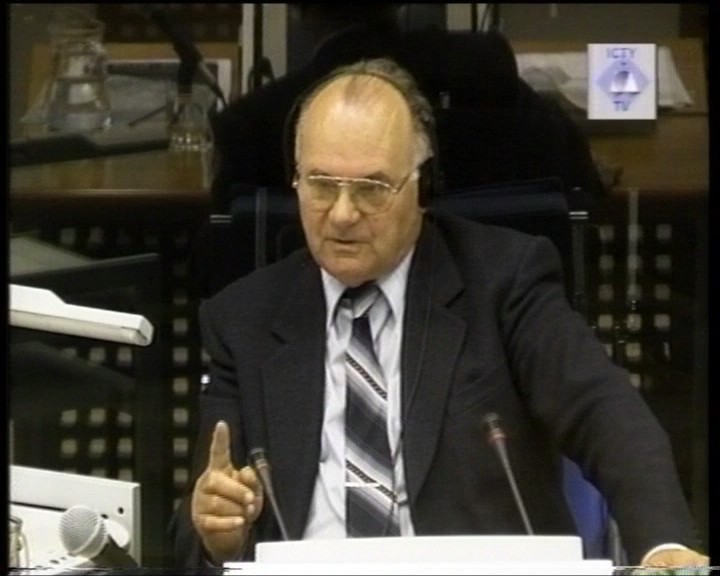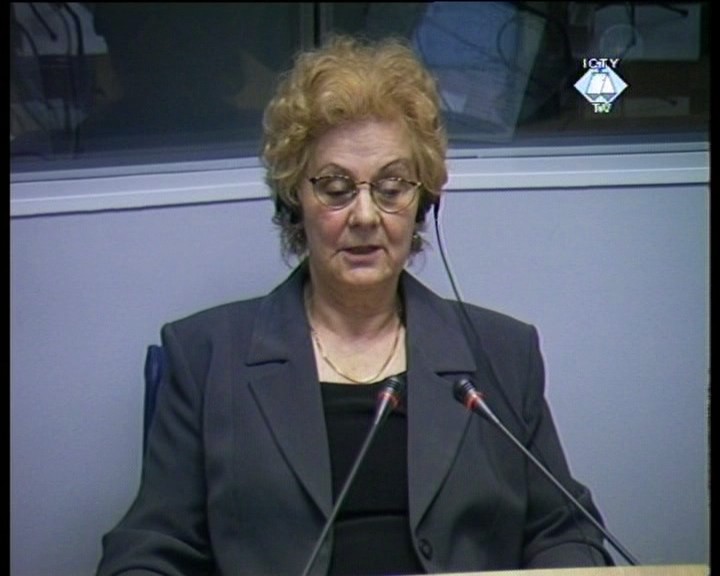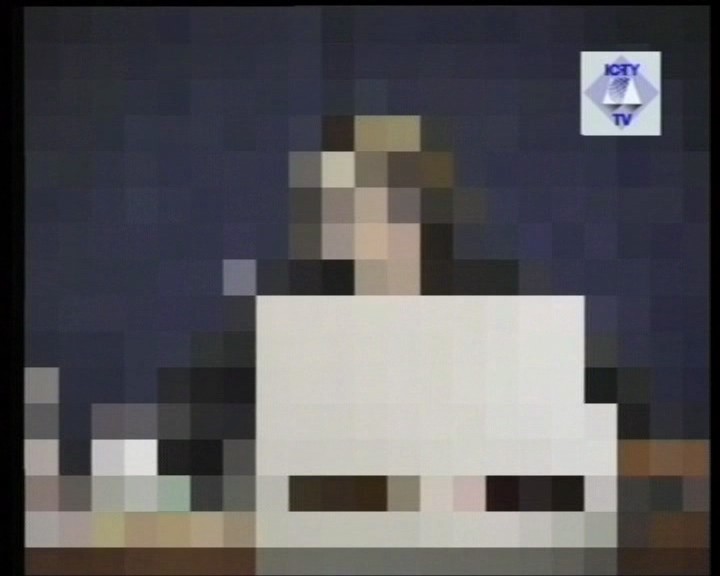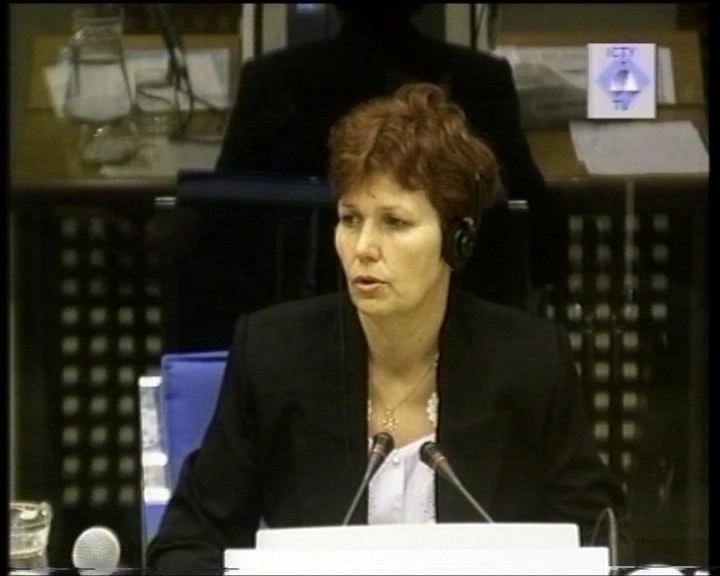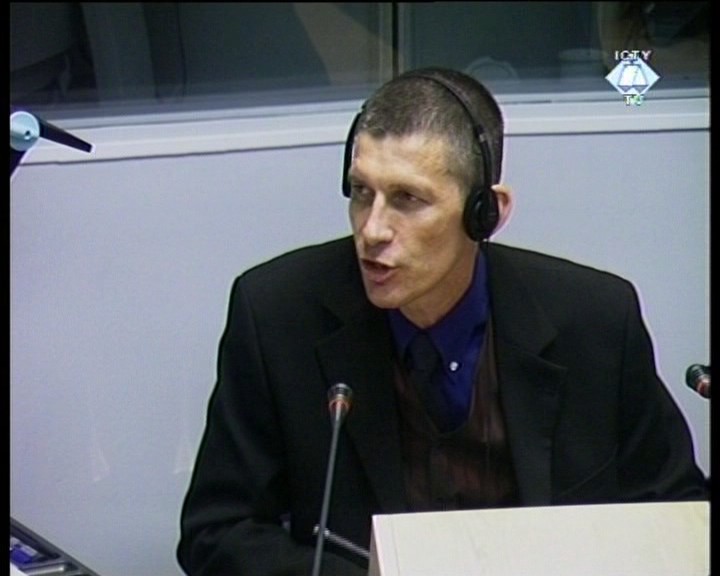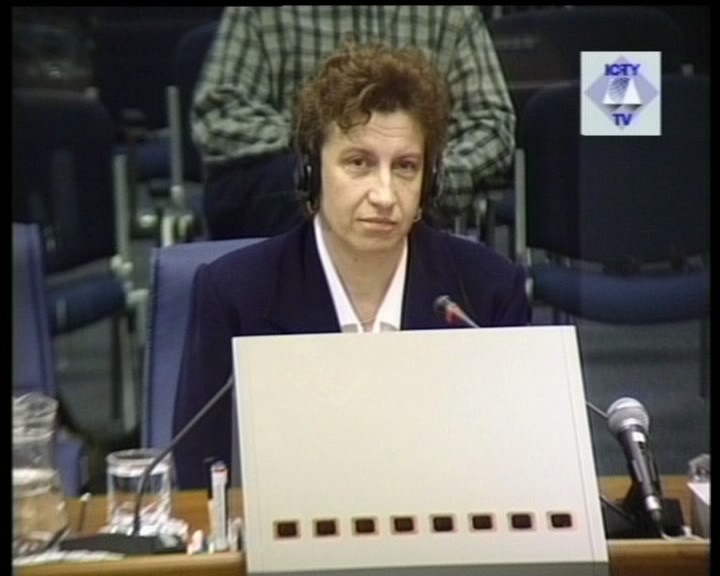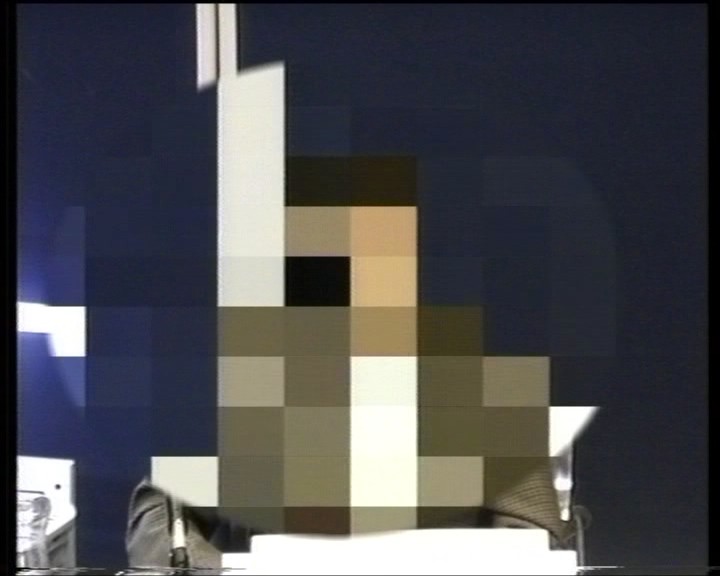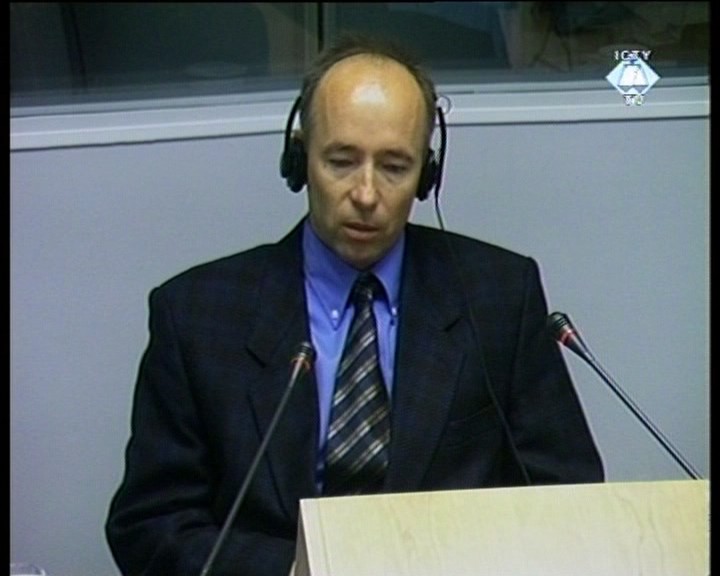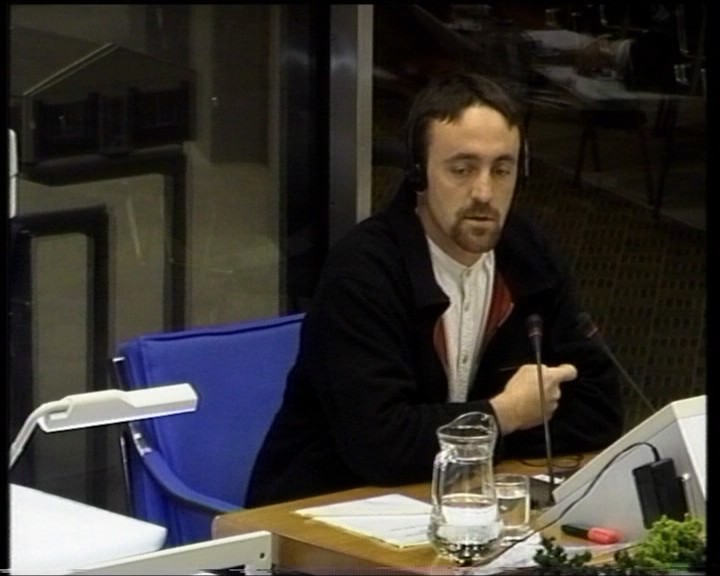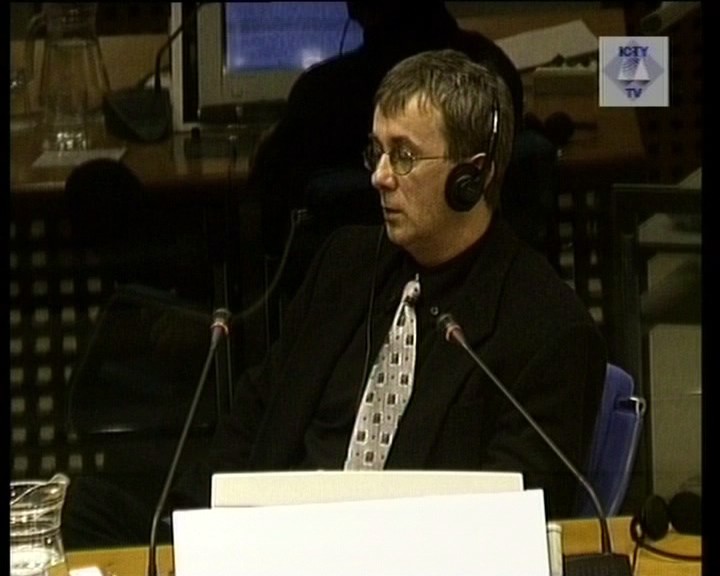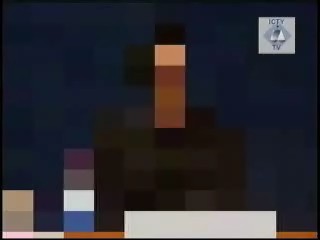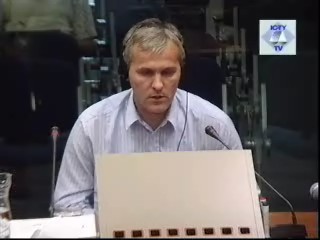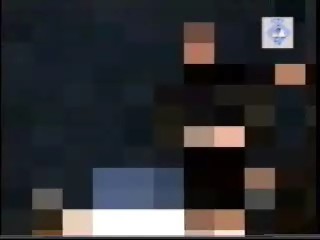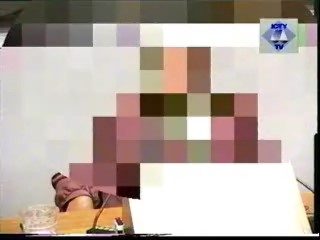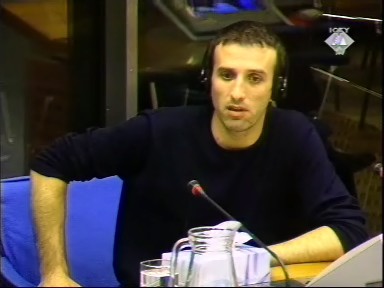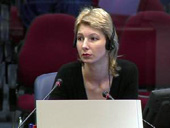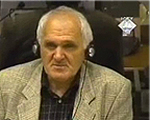Many victims who testified before the Tribunal courageously related how they were either beaten, tortured, raped, sexually assaulted, forced from their homes, watched how their family members were murdered, or how they saw others fall victim to these terrible crimes. Here you will find some of their stories.
|
“From all of whatever I have said and what I saw, I could come to the conclusion that this was extremely well organised. It was systematic killing. And that the organisers of that do not deserve to be at liberty. And if I had the right and the courage, in the name of all those innocents and all those victims, I would forgive the actual perpetrators of the executions, because they were misled. That’s all.” |
|
| x | |
|
Witness O (he testified with his name and identity withheld from the public), a 17-year old survivor of the Srebrenica executions speaking about their perpetrators. He testified on 13 April 2000 in the case against Radislav Krstić. |
|
| “…he trampled on my pride and I will never be able to be the woman that I was.” | |
| x | |
|
Grozdana Ćećez, a Bosnian Serb woman, speaking about how she felt after ICTY convict Hazim Delić raped her in the Čelebići prison camp near Konjic in Bosnia and Herzegovina. She testified on 17 and 18 March 1997 in the case against Zdravko Mucić, Hazim Delić, Esad Landžo, and Zejnil Delalić. >> Read her story |
|
|
“And then he turned to us, Croats, and he started speaking to us. ‘Listen you guys, we are going to kill all of you. We are going to burn you all. We are going to throw your ashes into the Danube, to destroy your Croat seed’. I remember exactly that sentence and I shall never forget it.” |
|
| .x | |
|
Emil Čakalić, a Croat from Vukovar, relating what he heard a soldier say to him and other prisoners at the Vukovar military barracks in 1991, after he narrowly escaped execution at Ovčara. He testified on 5 February 1998 in the case against Slavko Dokmanović, on 13 and 14 March 2006 in the case against Yugoslav People’s Army officers Veselin Šljivančanin, Mile Mrkšić and Miroslav Radić and on 16 July 2003 in the case against Slobodan Milošević. |
|
|
“… on one occasion that I did turn [on] the radio, I heard him speak over the radio and I heard him say that the Omarska camp did not exist. Of course, I felt insulted by what he said because everybody knew about the existence of the camp. It was strange that he should be denying [its] existence, whereas everybody knew about [it]. But I realised that it meant more to me than the others. Had it not been for this Omarska, my husband would probably be still alive, my nephew and many others who perished.” |
|
| x | |
|
Minka Čehajić, a Bosnian paediatrician, speaking about her quest to find out what happened to her husband after she last saw him in May 1992. She testified on 14, 15 and 16 May 2002 in the case against Milomir Stakić. |
|
|
"After a while, five or six soldiers entered my cell, and they first started to insult and provoke me. Then one of the soldiers threw a lighter down on the floor of the cell and told me to pick it up. When I bent to pick it up, he hit me. He actually kicked me. And then the rest of the soldiers started beating me, and I fell down. They continued to beat me. They continued to beat me until a policeman on duty entered and said, ‘Leave the man alone. He's not going to survive.” |
|
| x | |
|
Witness VV (he testified with his name and identity withheld from the public), a Bosnian army prisoner of war, speaking about the beatings he suffered in 1993 in the Široki Brijeg prison, near Mostar, southern Bosnia and Herzegovina. He testified on 4 and 5 December 2001 in the case against Mladen Naletilić and Vinko Martinović (“Tuta and Štela”). |
|
| "... when he finished raping me, he sat down and lit a cigarette, and he said that he could, perhaps, do more, much more, but that I was about the same age as his daughter, and so he wouldn’t do anything more for the moment." |
|
| x | |
|
Witness 50 (she testified with her name and identity withheld from the public), a teenage rape victim from Foča speaking about how ICTY convict Zoran Vuković raped her. She testified on 29 and 30 March 2000 in the case against Dragoljub Kunarac, Zoran Vuković and Radomir Kovač. |
|
| “…I would forgive them, perhaps, if my husband had taken up arms [against a Serb,] and if that same Serb had a weapon, and if they had shot at one another, but to kill the wounded that cannot defend themselves who have no arms, is terrible. It is a crime that has to be punished, and I appeal to you on behalf of my husband, my mother, and the children, that they be punished." | |
| x | |
|
Ljubica Došen, a Croat woman, describing how her husband was taken from Vukovar hospital and never seen alive again. She testified on 6 February 1998 in the case against Slavko Dokmanović. |
|
| “- … under a big pear tree, there was a heap of between 10 and 12 bodies. It was difficult to count them because they were covered over with earth, but hands and heads were sticking out of this little mound.
- Those that you could see, their heads, what sort of age did they appear to be?
- Young, I think, about 20 years of age. Not older”. |
|
| x | |
|
Ivo Atlija, a Bosnian Croat, speaking about killings that occurred in the area around his village in 1992 in the Prijedor municipality of Bosnia and Herzegovina. He testified on 3 and 4 July 2002 in the case against Milomir Stakić. |
|
| “Yesterday afternoon… I went to walk around your city... [W]hat caught my eye … was a monument to women… awaiting sailors who never come back. And the monument to those wives touched me profoundly. I should like to find this statue and take it to Bosnia with me. Perhaps it could be likened to mothers and wives of Srebrenica who have been waiting and hoping for all those years… We could turn to our empty forests. We saw our sons and our husbands off to those woods and never found out anything about them again, whether they are alive or dead, where are their bones lying. Many mothers have died hoping against hope, and it is quite possible that all the other mothers would end up like that because their numbers are dwindling every day.” | |
| x | |
|
Mirsada Malagić, a Bosnian Muslim woman, speaking about the women whose husbands were killed in the Srebrenica massacres in 1995. She testified on 3 and 4 April 2000 in the case against Radislav Krstić. |
|
| “…Many people were hurt very badly. One of them was very close to me and I imagine that he was killed as a result of the injuries sustained because he was even forced to sing the song ‘Sindjelic’ and other Chetnik songs. As long as he had any breath left he had to sing and they continued beating him and kicking him, I imagine, until he died.” | |
| x | |
|
Witness B (he testified with his name and identity withheld from the public), a Croat man from Vukovar in eastern Croatia, speaking about the beatings that Croat victims suffered at the Ovčara farm before they were executed. He testified on 5 February 1998 in the case against Slavko Dokmanović. |
|
| “There was a little girl there whose lower legs, both of them were completely shattered. She was dying. And then we had another child…. I couldn’t evacuate the children or the other wounded who were there. The reply we received was not very specific. The only thing they told us is: ‘Let all of you balija’ – derogatory for Muslims – ‘die there. We’ll kill you anyway.’” | |
| x | |
|
Dr. Idriz Merdžanić, a Bosnian doctor who treated victims of the Trnopolje Camp, speaking about how he tried to have two injured children evacuated from the northwestern Bosnian town of Kozarac. He testified on 10 and 11 September 2002 in the case against Milomir Stakić. |
|
| “I started wailing, screaming. I wanted to defend him somehow, to shield him, to ask them, but they told me, ‘Get lost. Get him. We shall cut his throat too.’ Those two grabbed him and he said to me, ‘Father, take care of my children, look after my children.’” | |
| x | |
|
Mehmed Alić, a Bosnian Muslim victim of the Omarska Camp, speaking about how he tried to defend his son Enver from Serb soldiers who were about to beat him. He testified on 23 and 24 July 1996 in the case against Duško Tadić. |
|
| “I was never told personally what was the reason for my capture, but Delić walked into the Hangar Number 6 on one occasion and he told us that we are detained because we were Serbs.” | |
| x | |
|
Nedeljko Draganić, a Bosnian Serb victim of torture in the Čelebići prison camp, explaining the reason he was detained. He testified on 2 and 3 April 1997 in the case against Zdravko Mucić, Hazim Delić, Esad Landžo, and Zejnil Delalić. |
|
| “Well, daily beatings were so regular that they didn’t even represent anything special anymore. I was once beaten up so badly, I spen[t] the next four days in a coma. I was thrown out onto a heap of corpses, and I was found there by one of my comrades who brought me back to the world of the living.” | |
| x | |
|
Ante Tomić, a Bosnian Croat speaking about his experiences in 1992 while being held at the Omarska camp in Prijedor, Bosnia and Herzegovina. He testified 5 and 6 April 2001 in the case against Duško Sikirica, Damir Došen and Dragan Kolundžija. |
|
|
“I think that I have decided to try and leave many of those things behind me somewhere, although within me, I still have and there will always be traces of everything that happened to me. I think that for the whole of my life, all my life I will have thoughts of that and feel the pain that I felt then and still feel. That will never go away.” |
|
| x | |
|
Witness 87 (she testified with name and identity withheld from the public) a Bosnian Muslim girl talking in court about the effects of the rape and the abuse she suffered during the nine months she was held captive by Serb soldiers. During this period she was also raped by Dragoljub Kunarac and Radomir Kovač. She testified on 4, 5 April and 23 October 2000 in the case against Dragoljub Kunarac, Zoran Vuković and Radomir Kovač. |
|
| “The soldier ordered [my father]. He was the one who was next to my brother Muris. He told him to step out two steps, and he barely did it, and then he shot him in the temple and killed him…He immediately, after that, he told me to step out two steps, and he shot a bullet into my temple…He hit me in the left side of the head and the bullet exited through my right cheek.” | |
| x | |
|
Abdulah Ahmić, a Bosnian Muslim man, testified about the massacre in the central Bosnian village of Ahmići, one of the conflict’s most brutal acts of ethnic cleansing. His brother and father were murdered in front of him by Croat soldiers and he survived attempted murder. He testified on 10 and 11 June 1999 in the case against Dario Kordić and Mario Čerkez. |
|
|
“There was nothing there, no discipline or hierarchy. It was lawlessness. People could do whatever they wanted. People could have killed as many people as they wanted without anybody asking why or how. Everyone came to settle their personal accounts there. If they had some verbal disputes, if people hated someone, they would come to Omarska and they would kill them. There were absolutely no rules. None at all”. |
|
| .x | |
|
Emir Beganović, a Bosnian Muslim man, was severely beaten and held under horrific conditions at the Serb-run Omarska detention camp, located just outside Prijedor, Bosnia and Herzegovina. He testified on 19 July 1996 in the case against Duško Tadić and on 4 and 5 May 2000 in the case against Kvočka et al. |
|
|
“It is hard to describe the situation there at that moment, at that place that we were brought to. There was general confusion, general chaos. People were moaning, crying. There was shooting. There were people whom I knew and people whom I did not know, and it was night-time. They had torch lamps and they went from one person to another. They took away the people they wanted to take away to the places where they wanted to take them, so that is what happened to me too.” |
|
| x | |
|
Witness E (he testified with his name and identity withheld from the public), a Croatian man from Vukovar, in his testimony describes the escalating tension across the region, the Serb siege and fall of the city, and his internment in various detention facilities. Witness E’s son did not survive the war. He testified on 3 February 1998 in the case against Slavko Dokmanović. |
|
|
“I am a sick woman now. I have high blood sugar. I have a weak heart. It is so bad. I have nothing to hope for. This mother cannot take it much longer. I will die of sadness and sorrow. What can we do? I would just like to ask…where they are, in which mass grave, so that their mother could give them a dignified funeral. I want to give them a proper burial, and then I can go away myself.” |
|
| x | |
|
Habiba Hadžić, a Bosnian Muslim woman, describes her ordeal in the Serb-run Sušica camp in northeast Bosnia, and the loss of her two sons. She testified on 3 November 2003 in the case against Dragan Nikolić. |
|
| “How is it possible that a human being could do something like this, could destroy everything, could kill so many people? Just imagine this youngest boy I had, those little hands of his, how could they be dead? I imagine those hands picking strawberries, reading books, going to school, going on excursions. Every morning I wake up, I cover my eyes not to look at other children going to school, and husbands going to work, holding hands.” | |
| x | |
|
Witness DD (she testified with her name and identity withheld from the public), a Bosnian Muslim woman, speaking about how she lost her husband and two sons in the July 1995 Srebrenica genocide. She testified on 26 July 2000 in the case against Radislav Krstić. |
|
| “I remember the first evening [in the Omarska detention camp], two young men suffocated. I remember them very well. They were just lying there on the floor. They were dead. No one flicked an eye. No one paid any attention. That was the state we were in. And everyone just looked after himself. No one had any sympathy for the dead body lying there. Until a day ago, we had still talked to each other, and now this person was dead. But it made no difference. It was really awful." | |
| x | |
|
Samir Poljak, a Bosnian Muslim teenager remembers the terror of Serb-run detention camps. He describes how he managed to survive, while the other members of his family perished. He testified on 23 and 24 July 2002 in the case against Milomir Stakić. He also testified on 20 November 2002 in the case against Radoslav Brđanin. |
|
| “And he said, ‘Hmm, I see. Martin Došen, why isn't he on the bus?’ And my mother replied we couldn't get the stretcher on to the bus and that's why it was placed beside the bus. And then he said he would have a lorry there to take the stretcher away. And then my mother asked him if anybody could collect his things. And then the man answered, ‘He will not be needing those things anymore.’" | |
| x | |
|
Tanja Došen, a young Croatian teenager, described how her father and several of her close relatives were taken from the Vukovar Hospital by Serb forces and never seen alive again. She testified on 6 February 1998 in the case against Slavko Dokmanović and on 8 February 2006 in the case against Mile Mrkšić , Miroslav Radić and Veselin Šljivančanin. |
|
| “There were insults, slurs directed at us. They told us, ‘Chetniks, you are firing at our children, throwing grenades’, and then the beatings followed. They wanted us to admit to being Chetniks, which I didn’t do because I wasn’t one in the first place, and secondly, it was an insult.” | |
| x | |
|
Nedeljko Radić, was one of many Bosnian Serbs who was maltreated by Bosnian Muslim guards at the Srebrenica police station in the autumn of 1992. In his testimony, he described what happened before and during his detention. He testified on 13, 14 and 17 January 2005 in the case against Naser Orić. |
|


